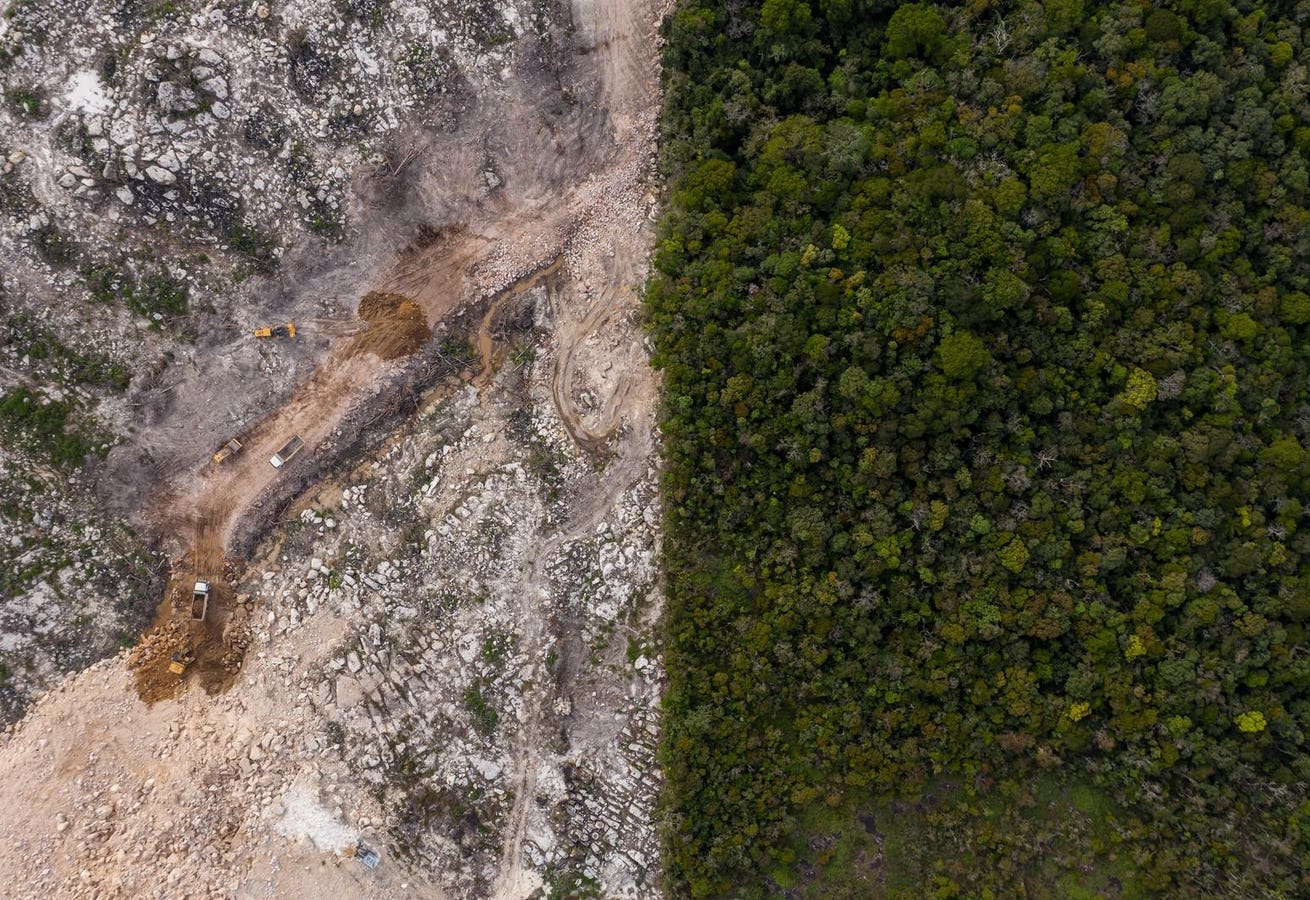There has been controversy surrounding the forest carbon credit market. Some project developers have been seen as cheating the system by overreporting the amount of carbon sequestered, which allowed them to earn greater revenue from carbon credit sales.
We take for granted that nations have to destroy their forests to develop, but carbon credits offer another way. Countries need money to build energy infrastructure, roads and bridges, fund hospitals and universities, and with programs funded by carbon credits, they can develop without destroying their countries. Carbon Credits offer alternative revenues to the government and local communities. This allows a country to develop without destroying its natural resources.
Deforestation in Cambodia. Densely canopied forest is destroyed in the pursuit of economic … More
This is how carbon credits work: they are coupons that represent some amount of carbon that has been stored in a patch of forest. Corporations can buy these coupons to help them achieve their net-zero commitments. Governments of developing nations can sell carbon credits and earn revenues to develop sustainably.
The forest carbon credit market has been heavily criticized, saying that corporations who buy carbon credits are only greenwashing their image. Some criticism has been fair. We acknowledge that there have been enough projects with flawed baselines to justify scrutiny from the press. Some project developers have applied the methodologies in a sloppy way, prompting heavy scrutiny. There have been enough examples of poor integrity in carbon accounting to have delegitimized the wider system in the eyes of many. This led to cynics believing that everyone was overstating how much carbon they actually sequestered. This is unfortunate because pragmatically, carbon credits are our best hope of preserving our remaining forests.
The Amazon rainforest being cleared for soybean planting. Mato Grosso state in western Brazil, Oct. … More
Up until now, there have only been a few accrediting firms in the carbon market. The limited selection of accrediting bureaus has made it such that when a bureau gets criticized, all the associated projects are tainted in the eyes of the carbon credit purchasers. Until now, Verra has maintained a de facto monopoly on the market, but a new firm has been announced and it will be accrediting projects by 2026. As a project developer, I’m very excited. We will have a new standard, Equitable Carbon Standard (ECS) and a new accrediting body, Equitable Earth, which lessens our dependence on Verra and gives more hope to carbon credit buyers.
Equitable Earth has stricter requirements for counting carbon, and has a methodology that provides greater empowerment to Indigenous and local people. The new system aims to resolve the lack of trust that the corporate buyers have for project developers. There have been concerns that the amount of carbon being reported did not match the reality on the ground. Separately, there have been complaints that some projects have harmed local people by taking their land away. In the new standard, indigenous people will play a bigger role in project management and benefit sharing. Their elevated position in decision making will hopefully allay some of these anxieties about their wellbeing.
Carbon credits are the best, pragmatic way to preserve the forests. Land conversion, clearing forests so that they can be replaced by agriculture, industrial development, or urban expansion, is the biggest driver of deforestation.
Deforestation across the Tropical Belt as of 2022. Green shows remaining forests. Carbon Credits … More
Global climate commitments include ending deforestation by 2030 and reaching net-zero emissions by 2050. This won’t be done by reducing emissions alone. Even with the emerging technologies and strategies that will lower the amount of carbon released into the atmosphere, we still need to absorb and sequester the balance to maintain net-zero emissions. Our forests, and the carbon credits that protect them, offer the most effective way to accomplish this imperative.




